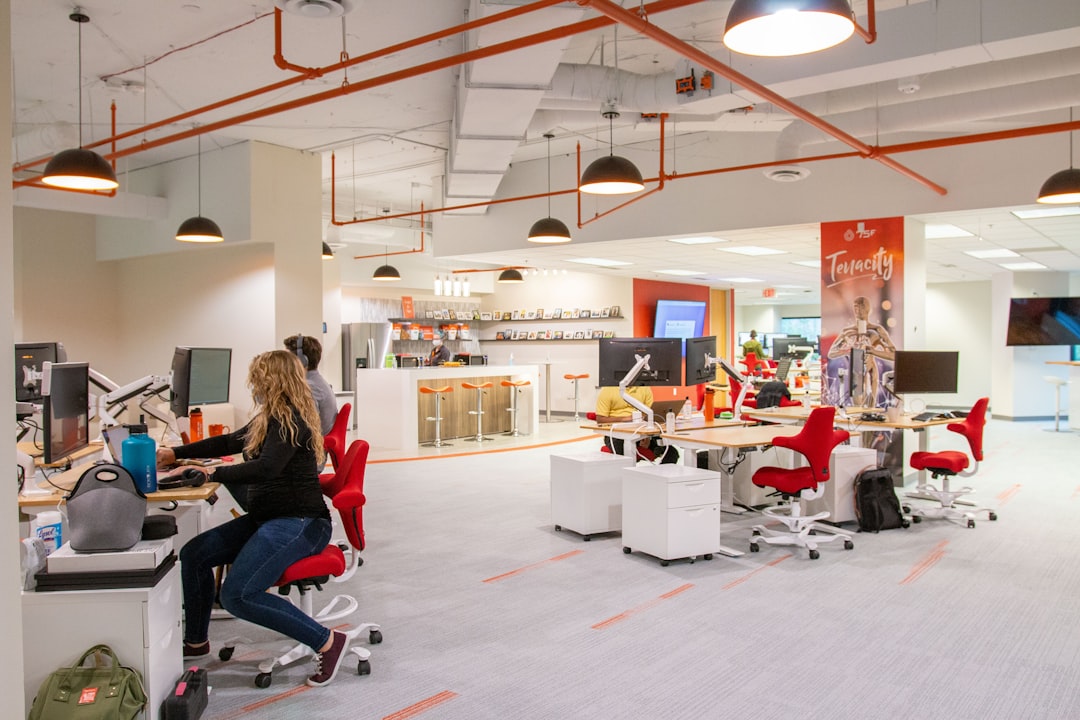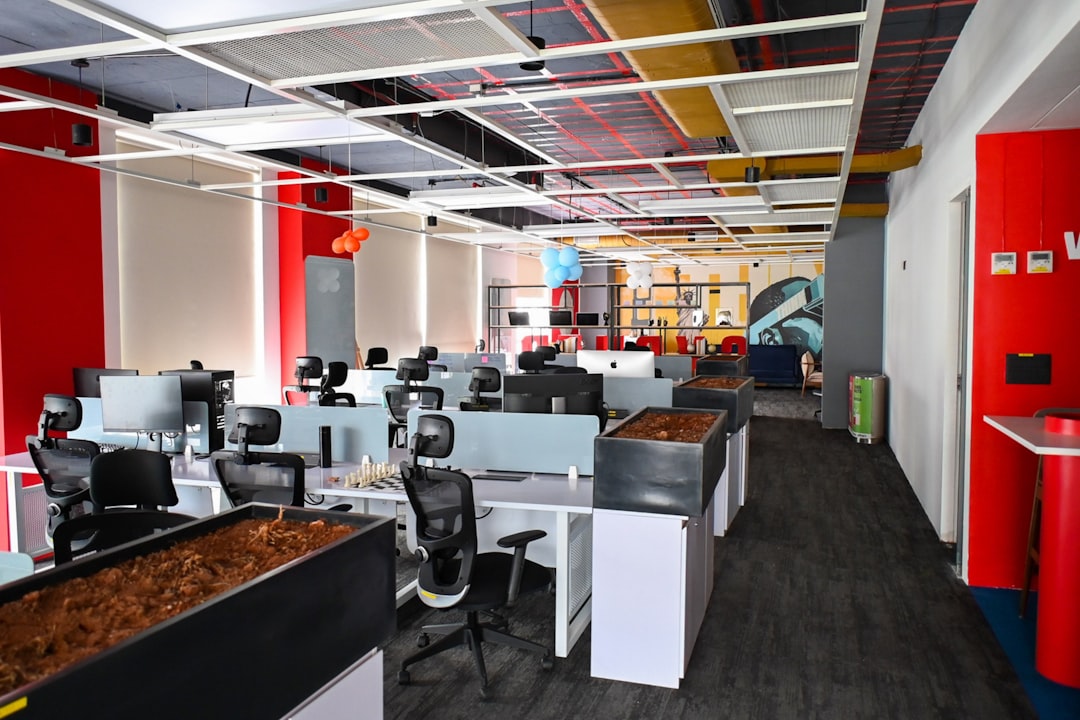Last week, I was chatting with an IT contractor who'd just wrapped up a six-month project.
"Best gig I've ever had," he told me, "and I never even met my team in person."
It got me thinking about how dramatically the landscape has shifted for IT professionals, especially contractors who've discovered that remote work benefits for IT contractors go far beyond just avoiding the morning commute.
You know what's funny?
Five years ago, suggesting that someone could deliver complex software solutions while working from their kitchen table would have raised eyebrows. Now? It's becoming the norm, and frankly, the results speak for themselves.
The Freedom That Actually Matters
Here's the thing about flexible work hours – it's not just about sleeping in or taking long lunches (though those are nice perks). I've watched contractors transform their entire approach to work when they're not chained to the traditional 9-to-5 mindset.
Take Sarah, a DevOps contractor I know. She's naturally a night owl, but for years, she forced herself to be "productive" during conventional business hours. When she switched to remote contracting, something magical happened. She started scheduling her deep coding work for 10 PM to 2 AM when her brain was firing on all cylinders, then handled meetings and emails during normal business hours. The result? Her project delivery times improved by 30%, and client satisfaction went through the roof.
The beauty of remote work is that it acknowledges something we've known all along – not everyone's peak performance hours align with arbitrary office schedules. When you're working as an IT contractor, your value isn't measured by the hours you sit at a desk; it's measured by the problems you solve and the solutions you deliver.
The Productivity Paradox That Isn't Really a Paradox
Now, you might be thinking, "But doesn't working from home make people less productive?" I get it – that's what we've been told for decades. But here's what I've observed working with hundreds of IT professionals: increased productivity isn't just possible with remote work; it's almost inevitable when done right.
Think about your typical office environment for a moment. You've got the chatty colleague who stops by your desk every hour, the impromptu meetings that could have been emails, the office politics, and let's not forget the soul-crushing commute that leaves you mentally drained before you even start working.
Remove all that noise, and what happens? Focus. Deep, uninterrupted focus that allows you to tackle complex problems without constantly context-switching. I remember working with a client who was skeptical about hiring remote contractors until they saw the quality of work coming from their distributed team. The contractors were shipping features faster and with fewer bugs than their in-house team. Why? Because they could actually concentrate.
Remote collaboration tools have evolved to the point where working with someone across the globe feels as seamless as working with someone across the hall. Slack, Zoom, GitHub, and project management platforms have created an ecosystem where geography becomes irrelevant.
Work-Life Balance: More Than Just Buzzwords
Let's talk about work-life balance, because it's not just corporate speak – it's a real competitive advantage. When you're not spending two hours a day commuting, that's time you can invest in learning new technologies, spending with family, or simply recharging your mental batteries.
I've seen IT contractors use this extra time to pursue certifications, contribute to open-source projects, or even start side businesses. One contractor I know used his saved commute time to build a SaaS product that now generates passive income alongside his contracting work. That's the kind of opportunity that emerges when you're not trapped in the traditional employment model.
But here's what really strikes me – remote work forces you to be more intentional about boundaries. When your office is your home, you learn quickly that you need systems and routines to separate work time from personal time. Contractors who master this skill often report higher job satisfaction and lower stress levels than their office-bound counterparts.
The Economics Make Perfect Sense
Let's crunch some numbers because the cost savings for IT professionals are pretty compelling. The average IT professional in London spends about £3,000-£4,000 annually on commuting. Add work clothes, expensive city lunches, and coffee runs, and you're looking at £5,000-£6,000 per year in work-related expenses.
As a remote contractor, those costs essentially disappear. You're working in comfortable clothes, making your own coffee, and eating meals that don't cost £12 for a mediocre sandwich. Over the course of a year, that's a significant chunk of money that stays in your pocket.
But the financial benefits go deeper than just expense reduction. Remote contractors often have access to a global market of opportunities. You're not limited to companies within commuting distance of your home. A contractor in Manchester can work for a startup in San Francisco or a fintech company in Amsterdam. This expanded market typically translates to higher rates and more interesting projects.
Building Skills That Matter in Tomorrow's World
Here's something that doesn't get talked about enough – remote work forces you to develop skills that are becoming increasingly valuable in today's market. Communication, self-management, and digital collaboration aren't just nice-to-haves anymore; they're essential competencies.
When you're working remotely, you become better at documenting your work, communicating asynchronously, and managing your own productivity. These are skills that make you more valuable, whether you're contracting or considering a permanent role.
I've noticed that contractors who've mastered remote work often become the go-to people for companies building distributed teams. They understand the nuances of remote collaboration in ways that traditional office workers simply don't.
The Reality Check: It's Not All Sunshine and Rainbows
Now, let me be honest with you – remote work isn't a magic solution to every career challenge. It requires discipline, excellent communication skills, and the ability to stay motivated without external structure. Some people thrive in this environment; others struggle without the social interaction and routine of an office.
The key is understanding whether remote work aligns with your working style and career goals. If you're someone who needs constant social interaction or struggles with self-discipline, remote contracting might not be your best bet. But if you value autonomy, flexibility, and the opportunity to work with cutting-edge companies regardless of location, it could be a game-changer.
Finding Your Path in the Remote Revolution
The remote work revolution isn't just changing how we work – it's fundamentally reshaping what's possible in IT careers. The contractors who are thriving in this environment aren't just adapting to change; they're leveraging it to create opportunities that didn't exist a decade ago.
This is where Coburg Banks comes into the picture. Since 2002, we've been connecting outstanding IT professionals with top companies, and we've watched this transformation firsthand. What started as an occasional arrangement has become a core part of how modern IT teams operate.
Our approach recognizes that the best IT talent isn't confined to any single geographic location. We work with companies that understand the value of building distributed teams and contractors who've mastered the art of remote delivery. Whether you're a seasoned contractor looking for your next remote opportunity or considering making the leap from permanent employment, we understand the unique dynamics of this evolving market.
The companies we work with aren't just offering remote positions as a compromise – they're building remote-first cultures that embrace the benefits we've discussed. They understand that accessing global talent pools, reducing overhead costs, and improving work-life balance for their teams isn't just good for morale; it's good for business.
If you're curious about exploring remote contracting opportunities or want to understand how the market has evolved, discover how our proven methodology has helped thousands of IT professionals navigate this new landscape and find roles that align with both their technical skills and lifestyle goals.


















